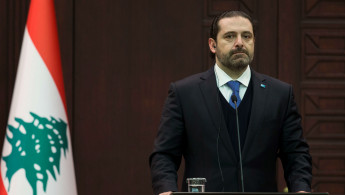New Lebanon government agrees to economic reforms
A new Lebanese government has agreed to economic reforms suggested by international donors last year, as Beirut looks to push ahead after months in limbo.
Rival parties finally managed to agree to form a new government last week, which included most of Lebanon's different factions.
With pro-West Prime Minister Saad Hariri in the helm the country has moved closer to accepting all the reforms contained in a Paris conference, when Lebanon sought economic assistance.
This will include measures to reduce Lebanon's deficit Finance Minister Ali Hassan Khalil told Reuters.
Donors pledged $11 billion in infrastructure investment for Lebanon, following years of under-funding and a sluggish economy.
Lebanon has one of the highest levels of public debt in the world, at around 150 percent of GDP.
Beirut will work to reduce its deficit by five percent of the GDP within five years, which will have to be approved by cabinet on Wednesday before going to parliament.
Lebanon will also have to disengage from regional politics, which has threatened to plunge the country into further sectarian-based divisions.
This includes in neighbouring Syria, where Hizballah has engaged in the war on the side of Bashar al-Assad's regime and emerged much stronger.
"We as a state are committed to distancing ourselves from events in the region," Jarrah said.
Qatar has agreed to buy $500 million of Lebanese government bonds, and is seeking more aid from "friendly" countries to be used in debt servicing.
"We are actively pursuing friendly countries to help us mitigate the short-term crisis we have faced because of the delay in the formation of the government," Nadim Munla, senior adviser to Prime Minister Saad Hariri, has said.





 Follow the Middle East's top stories in English at The New Arab on Google News
Follow the Middle East's top stories in English at The New Arab on Google News
![Israeli forces ordered bombed Gaza's Jabalia, ordering residents to leave [Getty]](/sites/default/files/styles/image_330x185/public/2176418030.jpeg?h=a5f2f23a&itok=_YGZaP1z)

